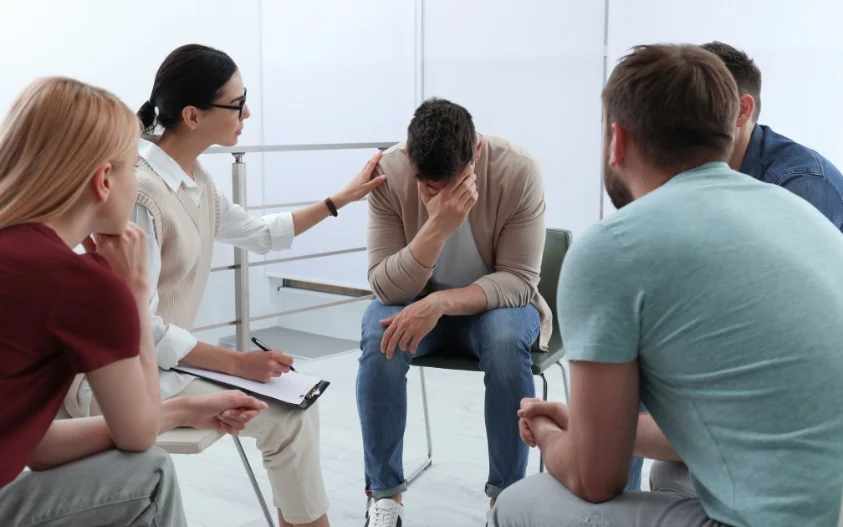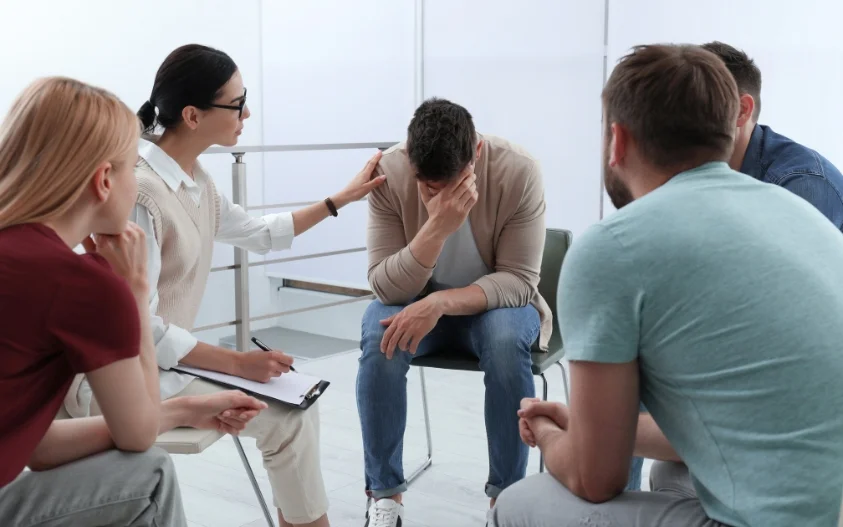24/7 Helpline:
(866) 899-221924/7 Helpline:
(866) 899-2219
Learn more about PTSD Treatment centers in Rowland
PTSD Treatment in Other Cities

Other Insurance Options

Sutter

EmblemHealth

Optum

Holman Group

Regence

Highmark

Sliding scale payment assistance

Optima

BlueCross

Health Net

Cigna

American Behavioral

Kaiser Permanente

Excellus

Absolute Total Care

PHCS Network
Beacon

CareSource

Magellan

Horizon Healthcare Service



















